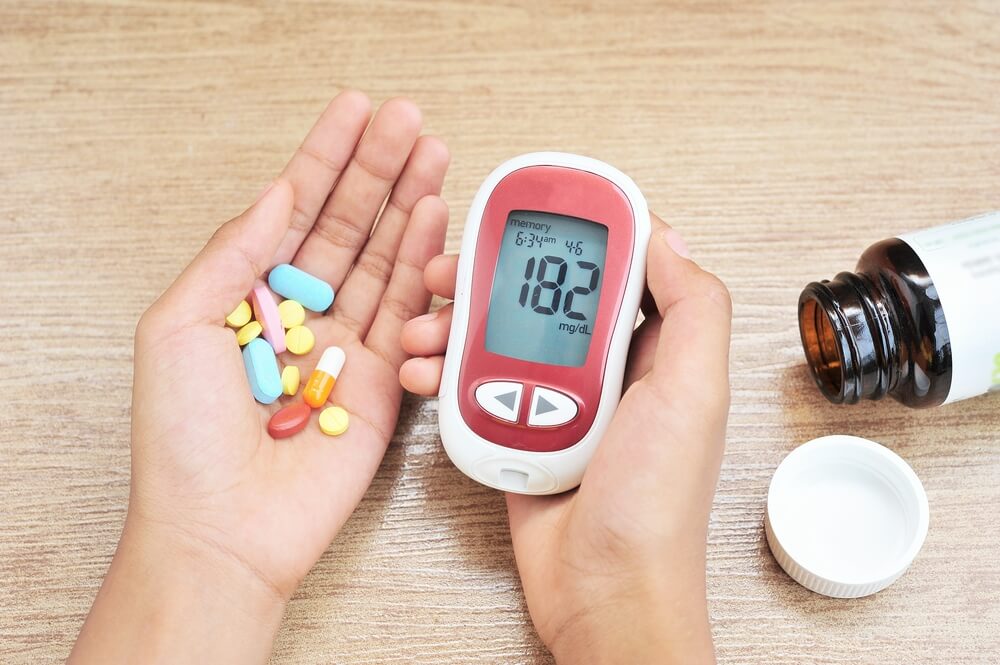New diabetes drugs have shown an ability to reduce anxiety.
New information shows that certain diabetes medications can help combat anxiety symptoms. This information stems from research that reflects that one of the principal characteristics of both diabetes and prediabetes, insulin resistance, can play a role in individuals developing anxiety symptoms.
Continue reading to find out more information about different types of diabetes drugs and which diabetes medications can help combat anxiety symptoms in individuals who have prediabetes or diabetes.
Click here to discover the best food for diabetes control.
Anxiety Symptoms
Research conducted at the University of Toulouse and the University of Bordeaux was able to link insulin resistance to anxiety and depression. Their research found that metformin, one of the common types of diabetes medications that treat type 2 diabetes, was able to reduce anxiety symptoms in their test subjects.
Metformin was able to increase serotonin by slowing the circulation of certain types of amino acids that decrease the levels of tryptophan entering the brain. Serotonin is a hormone that is also a neurotransmitter playing a major role in emotions regulation. Tryptophan is another type of amino acid that can only be obtained through the food that is consumed and is important because it is specifically used to create serotonin.
What this means for metformin is that it provided a solution allowing more of the tryptophan amino acids to circulate through the brain allowing for more production of serotonin reducing anxiety symptoms.
If you have diabetes or prediabetes and are unsure what anxiety symptoms are they can be described as the following:
- Excessive Worrying
- Feeling agitated
- Restlessness
- Fatigue
- Difficulty Concentrating
- Irritability
- Tense Muscles
- Trouble Falling or Staying Asleep
- Panic Attacks
- Avoiding Social Situations
- Irrational Fears
The research around new diabetes drugs and anxiety symptoms is in preliminary stages but it’s a step in the right direction towards helping healthcare professionals not only treat metabolic conditions but also mental health illnesses.
Continue reading to learn about types of diabetes drugs that can help with both type 1 and type 2 diabetes.
Diabetes Medications
Diabetes affects blood sugar levels in individuals when the insulin in the body isn’t functioning effectively making it difficult for the body to regulate the sugar in the blood.
Individuals who have type 1 diabetes, which includes treatment of insulin injections and diet planning to avoid complications can take various types of diabetes medications. The constant factor in medications for those who have type 1 diabetes is insulin and that is because it is needed to replace absent insulin levels in the body. This is usually done through insulin injections and these types of diabetes medications are:
- Rapid-Acting Injections
- Short-Acting Injections
- Intermediate-Acting Injections
- Long-Acting Injections
- Premixed Injections
Click here to learn simple steps to help prevent diabetes.
Other types of diabetes drugs for individuals with type 1 diabetes re non-insulin injectables which are Amylin analogs and Glucagon.
Individuals who have type 2 diabetes don’t always need to use insulin to manage high blood sugar levels but it sometimes is prescribed in certain cases. In general, individuals with type 2 diabetes are prescribed diabetes medications that are non-insulin drugs that help lower the blood sugar levels, these types of diabetes drugs are:
- Meglitinides
- Sulfonylureas
- Biguanides
- Thiazolidinediones
- Alpha-glucosidase inhibitors
- Dipeptidyl peptidase inhibitors
- Sodium-Glucose co-transporter 2 inhibitors
- Incretin mimetics
- Oral combination drugs
In general, other types of diabetes drugs can work together with other medications to help combat other health problems. If you have diabetes and are suffering from other health problems or notice signs of anxiety, speaking to a medical professional about your concerns can help you get on the right path to feeling better.
Not all medications work the same for each individual and having an open line of communication with your doctor about what is going on with your mental and physical health is a great way to keep you feeling good and healthy.
Learn more about diabetes at BetterHealthKare.com.
